Africa’s top women’s singles player Kate Foo Kune spoke to Badzine about the challenges facing aspiring badminton players from one of the world’s most remote places.
By Don Hearn, Badzine Correspondent. Photos: Badmintonphoto
While Africa is already figuratively on the periphery of the world’s concentrations of badminton popularity and power, 20-year-old Kate Foo Kune’s home of Mauritius is literally barely on the periphery of Africa, lying far out in the Indian Ocean, 2500 kilometres from the mainland’s nearest major city.
Add to that a tiny population and economy and a cost of living influenced by its status as a tourist haven and it starts to look like one of the most challenging places from which to start an international sporting career.
However, where geography and economics might have failed her, family stepped in to give Kate a fighting chance. She was preceded in her journey by her sister Karen – with whom she competed at the 2010 Commonwealth Games at age 17 – and the two have together made the Foo Kune name synonymous with Mauritian badminton.
The past few years have seen Kate Foo Kune struggle to develop her skills and her career but she recently finished as runner-up at the African Badminton Cup of Nations, losing to Nigeria’s Grace Gabriel in the final, before scoring her first career win over the new continental champion a few days later in the final of the Mauritius International Series.
In Guangzhou earlier this month, where Kate represented Africa at the Wang Lao Ji BWF World Championships, she spoke to Badzine about her struggles and hopes in her fledgling career.
Badzine: When we think of badminton players from Mauritius, the two names that come to mind both end in ‘Foo Kune’. How is it that your family came to put your country on the world badminton map?
Kate Foo Kune: My parents used to play badminton and they fell in love with each other in badminton. They won the mixed doubles together in the Indian Ocean Games. It was really a sort of cute love story.
In fact, when they built our house in Mauritius, they made the burglar bars covering the windows in the shape of a shuttlecock. So my parents have always loved badminton and they’ve always pushed me to play and to represent the country.
Now I’m thinking of moving to the next level, international level. I mean, why not try it?
Badzine: You have already competed in the 2010 Youth Olympic Games and you have played internationally in women’s doubles with your sister Karen. What sort of turns has your career taken in the past few years?
Foo Kune: My first tournament in Europe was two years ago. I was still quite young and I didn’t really know how it went. I didn’t know much, actually, but my sister brought me along just to have the experience of it. I really liked it and I wanted to try.
The thing is that in Mauritius, you don’t get any funding. I’m here at the World Championships with my own money. That’s the only problem.
You need to try to get sponsored and you need to be good to get sponsored but how can you get good if you don’t pay for training? It’s kind of a vicious circle.
Badzine: So there are many players who were supported by their associations but have later chosen to be independent but it seems the ones who are most successful as independents are those who are already at the top, like Taufik Hidayat or Markis Kido. Things seem very different for an independent player in your position.
Foo Kune: I think you really need to be surrounded in the beginning. You need to have that foundation.
You need, at least, to have a coach behind you when you play at a tournament. I didn’t know which way the wind is blowing on the court. I didn’t have any help on tactical things. I didn’t know anything. I just went on court to play.
I was lucky I had some friends here I could hit with but I’m not really surrounded and I think it’s really sad because I really want to try.
Badzine: So where is your training base, then?
Foo Kune: I train in Leeds, in England, but I’m doing my degree at the same time so I can’t really train a lot there. I still try to train at least once a day, though, in the morning.
I’ve been in England since last year. Before that, I did 4 months in Malaysia and apart from that, I’ve been in Mauritius.
I’ve tried to go to Malaysia as much as possible because that’s where the good training is but I need funding to get there. That’s the only problem.
Badzine: Players in Southeast Asia or in Europe can hop to regional events somewhat easily but that’s much harder in Africa and your home being so far from the continent must make it so much more difficult.
Foo Kune: I know. Mauritius really is just in the middle of nowhere.
I always think of it this way: why don’t I have a European passport? It would be so much easier for me to just be in Europe all the time and not have to pay the international fees and not have to look for a visa to stay and all these troubles and I could just be there to achieve my dream.
And now it seems like all possible odds are stacked against me.
Badzine: Now that you are living in England, have you been able to take advantage of a home base much closer to the European Circuit?
Foo Kune: I have been but it still costs money to get around to tournaments. That’s how I qualified for the Worlds – because I was able to get to a few tournaments – but it’s only temporary. My studies are only three years and I’ve already been there one year.
Badzine: Players in the Pan Am region, for example, seem to benefit from playing events on that continent but is playing in Africa of a similar benefit to you, even though Mauritius is so far removed?
Foo Kune: We can still go to events in Africa, but it’s really not the same in terms of experience and we sometimes play in really bad conditions, like on wooden floors or concrete floors even.
Mauritius has really no money in badminton. They don’t want to invest in it. So maybe I would play in Africa once a year.
Even though I am the best in Mauritius, they wouldn’t fund me. They will fund football instead. Our football team has really no chance but it’s just because it’s a popular sport that they would get the money.
The government in Mauritius also put all the odds against us. Before, when you sponsored an athlete, you would get a tax break from it but now if you sponsor athletes, you don’t get anything. So I don’t get any sponsors from my country.
Badzine: Is there any importance attached to winning the African Championships?
Foo Kune: I can play an African Championship and if I win, I might get a sum of money but it isn’t like anyone would be trying to find me sponsors or anything.
There is an Olympic scholarship but you have to be nominated to get it and with the amount of money they give you, it’s still not enough. Based in Mauritius, to earn it, I would have to fly all the way up to a tournament in Africa. It’s quite expensive, too, because it’s the ‘paradise island’ so there are many honeymooners who come and the flights are not that cheap.
Badzine: You mentioned your studies in England. What is your major?
Foo Kune: My major is sports management. I really want to manage sports in Mauritius. I’d like to give future athletes the chance to go global but we’ll see what happens. That’s my dream.
Badzine: What sports has Mauritius had some success in?
Foo Kune: We’ve had World Champions in athletics and kickboxing and an Olympic medallist in boxing but if you look at them now, they’ve won so much but they’re still taking the bus and they have no money. The government just says ‘Oh, congratulations! Good luck!’
Badzine: And yet some of the players at these World Championships received huge cash rewards or have lifetime pensions from their governments for winning Olympic gold medals.
Foo Kune: Some people are truly blessed. I often tell my friends on the tour that. They should really enjoy it because it’s a wonderful thing being a badminton player.
Badzine: And are you enjoying the life of a badminton player, despite everything?
Foo Kune: I am, actually. I love meeting new people and here I am at the World Championships and I’m thinking, ‘Oh my god, this is crazy’. Not many people can say that. But maybe in a couple of years I can make some money from it – stop being in the loss zone and move into the profit zone.
Badzine: What, among your badminton accomplishments, are you proudest of?
Foo Kune: I have won the continentals for under-15 and under-19 and I hope to win the senior continental championship too.
Badzine: What goals have you set other than being the African Champion and obviously qualifying for Rio?
Foo Kune: Yes, Rio, obviously, but my ultimate goal would be to be at least top 50 in the world. I’m willing to make any sacrifice for it but I need some faith from people. That’s my only problem. These days, people don’t have much faith.
Badzine: With all the adversity, and all the odds you have found stacked against you, you still soldier on. How do you do it?
Foo Kune: To be honest, it’s been really hard. There’s always some bad news: you can’t do this, you can’t go there, there’s no money, etc.
But I really believe, now that it’s five years on, that what hasn’t killed me before has made me stronger. So if you tell me I can’t go there or if you tell me there’s no money, I think ‘okay’.
It’s all about positive thinking. I know what my goals are and I will do anything to get there. Even though a billion people don’t believe in me, I want to prove them wrong.
![Kate Foo Kune – Beating the odds from ‘the middle of nowhere’ Africa’s top women’s singles player Kate Foo Kune spoke to Badzine about the challenges facing aspiring badminton players from one of the world’s most remote places. By Don Hearn, Badzine […]](http://www.badzine.net/wp-content/uploads/Newsflash-thumbnail.png)
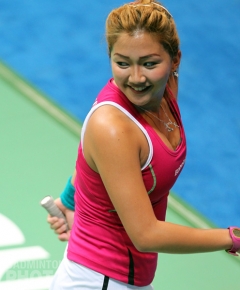
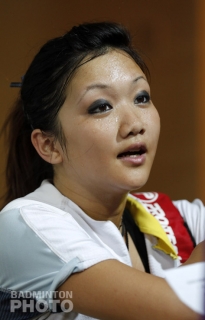
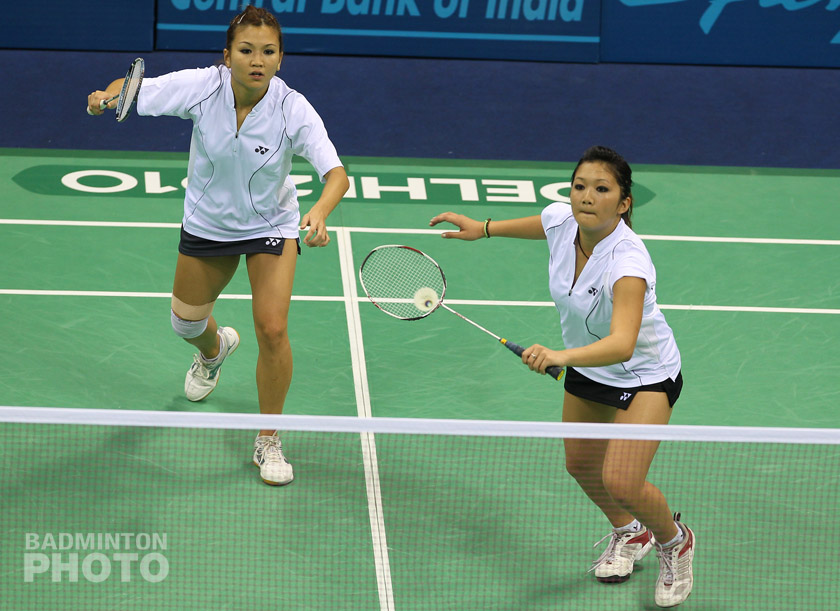


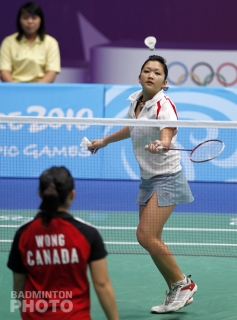


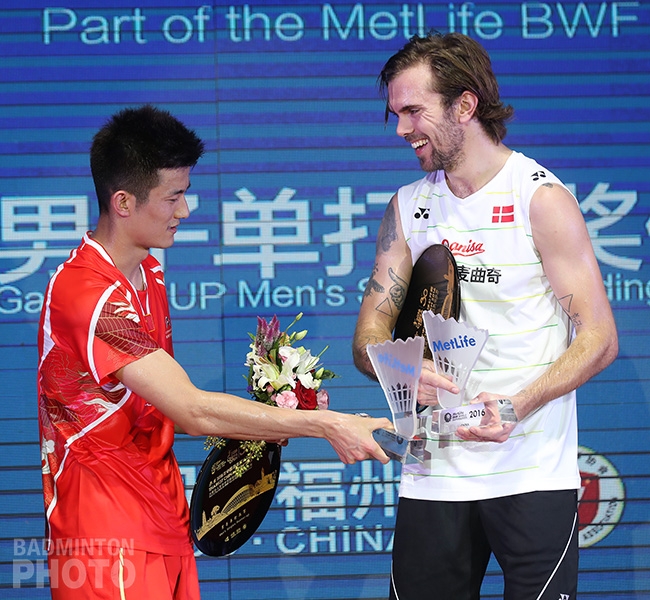
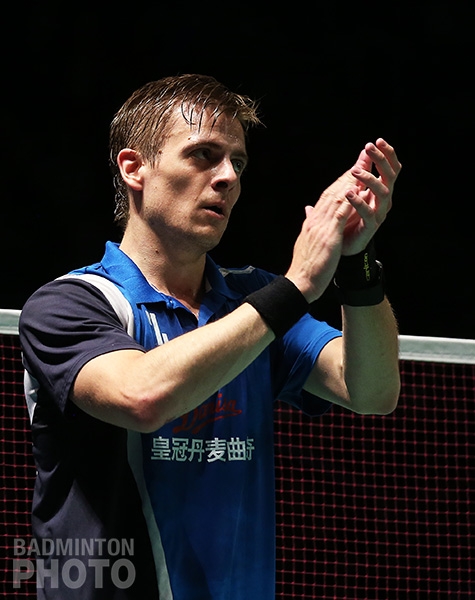
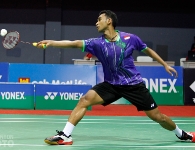


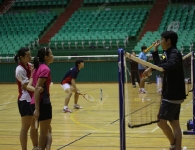
Leave a Reply